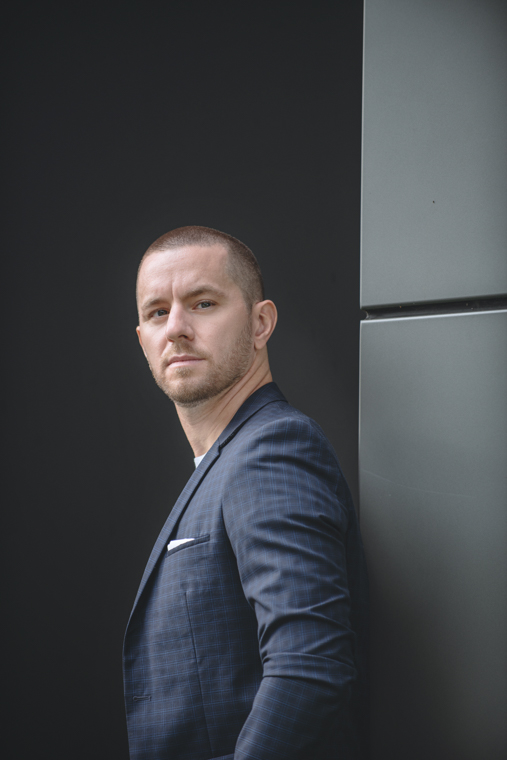 Paul Hadjy, CEO and Co-Founder, Horangi
Paul Hadjy, CEO and Co-Founder, Horangi
Paul Hadjy, CEO and Co-Founder, Horangi
The shift to remote work presented significant cybersecurity challenges for our clients, having vastly increased the digital footprint to be protected. Being a cloud-native company enabled us to scale our services quickly in line with evolving requirements, where we continued to deliver innovative, best-in-class cybersecurity solutions for cloud-based, decentralized workspaces.
On Cyber Threats
Cyber threats will continue to evolve in line with digitalization, making it essential for business leaders to invest in growing their cyber defense capabilities. With the use of cloud platforms for remote work set to continue, a consolidation of IT and security tools will likely become the norm.
We’re observing this trend in cloud security — the same area our Warden solution covers — with IT leaders increasingly combining functions such as antivirus and threat detection, secure code practices, cloud workload protection, and infrastructure protection.
Minimizing applications enhances overall speed and efficiency – vital elements of effective cybersecurity – as teams can receive information and execute necessary actions from a single platform.
We’re also anticipating increased use of self-learning entities powered by Artificial Intelligence and Machine Learning, augmenting the ability of security teams to accurately and automatically detect anomalous behavior. Collectively, these will provide the necessary elements for secure growth in a digital-first economy.
(Related: Outlook 2022 Part 3)
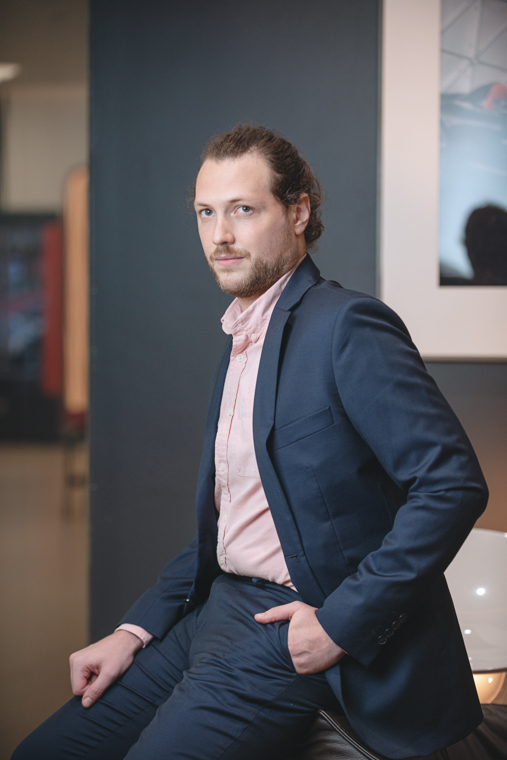 Per-Ola Röst, CTO & Co-Founder, Rainforest
Per-Ola Röst, CTO & Co-Founder, Rainforest
Per-Ola Röst, CTO & Co-Founder, Rainforest
E-commerce sales reached all-time highs during the pandemic. While that has benefited the different brands in our portfolio, shipping costs have increased fivefold and are not expected to normalize for another year. This has propelled us to look even closer at ways to optimise and consolidate shipments across all our brands.
On Consumer Behavior
The pandemic has brought about a shift in consumer behavior (transitioning to online) and also in consumer interests. We are seeing new, booming industries like home goods and pets which are growing beyond our expectations. I believe many of the underlying trends are here to stay, like the work-from-home scheme.
We deploy capital in some of these high-growth verticals with our focus being mother and kids, home goods, and personal care. We are fortunate to be one of the early entrants in the e-commerce brand aggregation space in Asia. Our core value-add is to professionalize these smaller brands and take them to the next level after acquisition.
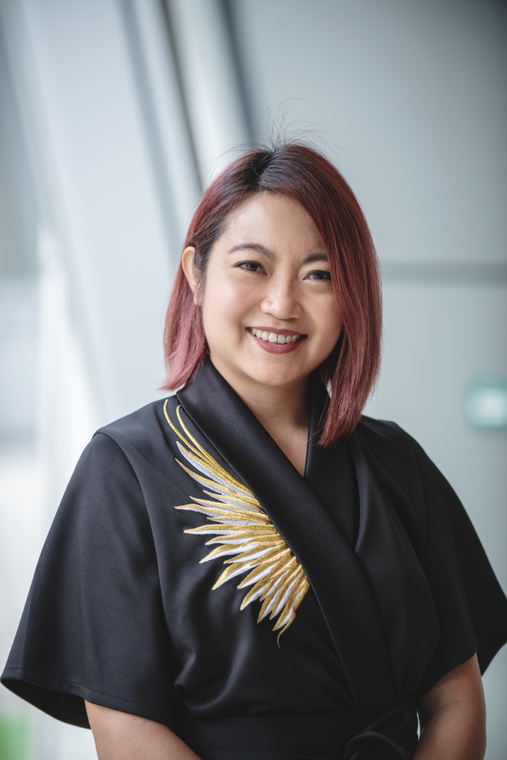 Melissa Quek, Head of School of Dance & Theatre, LASALLE College of the Arts
Melissa Quek, Head of School of Dance & Theatre, LASALLE College of the Arts
Melissa Quek, Head of School of Dance & Theatre, LASALLE College of the Arts
Not being in the same physical space as our audience, collaborators, fellow performers and students was a shock. With such a fundamental limitation, we had to reassess our process and approach. Connections needed to be made in the imaginative space and feedback had to be given remotely.
On Digital Performances in the Arts
The performances that are coming out of the pandemic have a polarising effect, with some audiences desiring the communal experience of watching live performances and others craving intimate and personalised experiences. Augmented Reality (AR) technology might allow us to recreate that experience or bring the performances into our own context.
Isolation has also made us more receptive to Virtual Reality (VR) technology that can immerse us in the world of performance. And though border controls have made buying local the way to go, VR technology and screen-based performances are a cost-effective way for companies to tour their work internationally, which fits well with the increase in festivals going fully digital or hybrid.
Along with this shift to more digital or digitally presented performances, I believe dance and theatre companies will adjust their infrastructure and develop more expertise in the areas of camera work and coding.
Percy Hung, CEO and Co-Founder, Choco Up
After the pandemic outbreak, face-to-face interaction was shut down overnight. We were quick to adapt to the new normal, by interacting with startups and online businesses via the internet, processing data integration and collection via APIs, and running data analytics via cloud infrastructure.
On Venture Capital
Online commerce and Software-as-a-Service (SaaS) have shown tremendous potential post pandemic. Benefitting from the work-from-home economy, these businesses have experienced record growth in a very short time.
Much venture equity is now currently exploring e-commerce roll up strategy, where a dedicated platform gobbles up various brands and achieves economies of scale by streamlining operations, including purchasing, warehousing and payment.
As a data-driven revenue-based financing platform, we leverage data analytics and vast integration to automate growth fund deployment, providing companies with quick, seamless, and recurring access to growth capital. As startup founders ourselves, we understand that many businesses face initial difficulties in raising capital quickly, and we are a sector-agnostic team that serves tech-enabled and data-driven businesses.
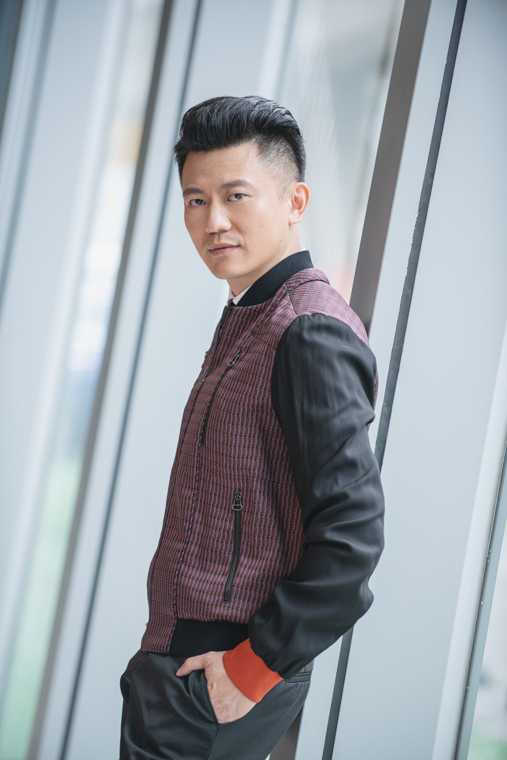 Pornsak Prajakwit, CEO & Co-Founder, Mdada.live
Pornsak Prajakwit, CEO & Co-Founder, Mdada.live
Pornsak Prajakwit, CEO & Co-Founder, Mdada.live
Mdada.live was started by Addy Lee, Michelle Chia, and myself when our careers were heavily impacted during the pandemic. Having experienced the success of live streaming commerce in China, we wanted to replicate that model in Southeast Asia, starting with Singapore.
On E-Commerce
Covid-19 gave brands the opportunity to evolve the way they outreach to consumers and sell products, as people could not visit physical stores. The pandemic also accelerated the growth and receptivity of the social commerce and livestream sectors. Live-stream commerce encourages two-way conversations and interactions in real time, not only increasing genuine engagement between consumers and hosts but also providing a form of companionship and entertainment through watching live streams with familiar faces.
Capitalising on the growth potential of this nascent industry in Asia, we aim to cultivate a sustainable live stream ecosystem — offering training sessions and mentorship programs for businesses and aspiring live-streamers pivoting in the new normal in redefining the new wave of creative retail. With various other business functions taken care of in-house, such as sourcing, verification of products, administration and payment, many employment opportunities have also arisen.
 Shulin Lee, Co-founder, Ansa Search
Shulin Lee, Co-founder, Ansa Search
Shulin Lee, Co-founder, Ansa Search
In the first quarter of 2020, we had zero revenue. This was a first in the 11 years of my recruitment career. We rallied the team to target a different segment of the market – sectors which would thrive because of the pandemic. We relied heavily on social media to get the word out.
On the Future of the Workplace
The pandemic has changed the way we work. Fresh graduates and more junior executives have been largely working from home. This has impacted their ease of transiting into a new role, learning on the job, and somewhat stunted their development.
All the virtual meetings in the world cannot replace chance encounters with a teammate in the pantry, water cooler discussions with a senior, and listening to how your manager navigates a tricky situation over the phone, whilst seated in an open concept office.
To breach the gap – experienced professionals can be encouraged to form their own communities in their respective industries. If we were to take a chapter from Lean In, where Sheryl Sandburg had thousands of professionals form circles.
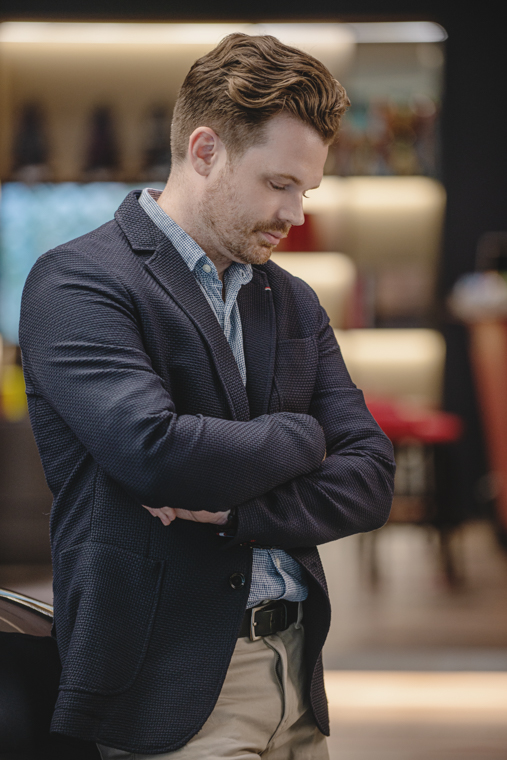 Stephen Tracy, COO, Milieu Insight
Stephen Tracy, COO, Milieu Insight
Stephen Tracy, COO, Milieu Insight
Employee onboarding has been a big challenge. Since January 2020, our headcount has grown from 18 staff in 3 countries to 62 in 6 countries. We had to adapt quickly to find ways to remotely onboard our new joiners across multiple countries in a way that is both educational and engaging.
On the Future of the Workplace
I think we’re going to see an interesting split in the workplace model between companies that wish to return to a pre-pandemic “normal” versus more progressive firms that have committed to a “new normal.”
Take Twitter versus Apple, for example. Both models will likely co-exist as companies commit to the approach that aligns with both their business and employees’ needs. But one notable outcome of the work-from-home model has been a greater focus on employee engagement and mental well-being.
Tech innovation and enablement in this space has sprung to life in recent years, with companies now investing in digital tools to improve employee engagement like virtual coffee/water-cooler apps, as well as e-therapy apps for their employees. I believe this represents a shift in the mindset of how many business leaders think about their workforce and it’s a change that is here to stay.
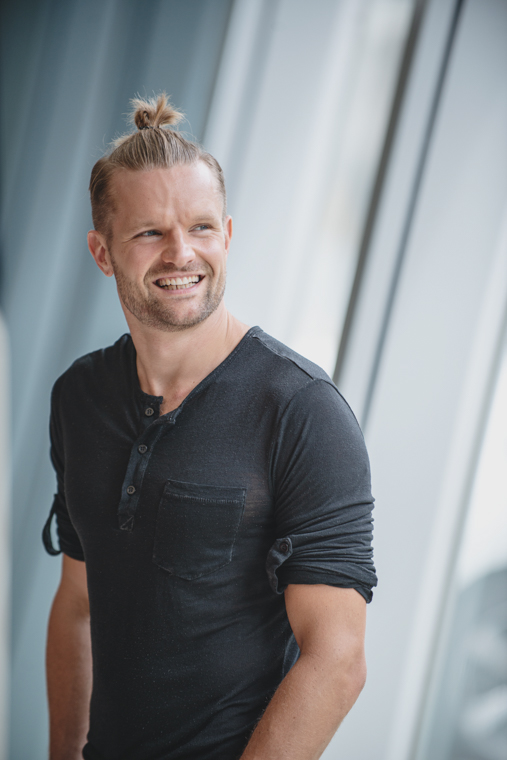 Jon Lister, CEO and Co-Founder, CreatorsLab
Jon Lister, CEO and Co-Founder, CreatorsLab
Jon Lister, CEO and Co-Founder, CreatorsLab
We were about to shoot a pilot episode with Chef LG Han for a series we were working on when the pandemic struck. But what started as a roadblock became a benefit; it gave us more time to talk to Chef Han and get to know his family. When we came to shoot, the interviews were more relaxed and more honest. It was an important lesson – to tell real stories and prioritize human connection.
On Singapore’s Arts & Culture Scene
I feel that there is a slow cultural shift happening here in Singapore and people are realizing the importance creativity has on society and the economy as a whole. It’s up to art institutions to leap on this and to push the message that creativity IS an essential industry and that not only does it employ people, but it also benefits the entire country, and that means economically as well.
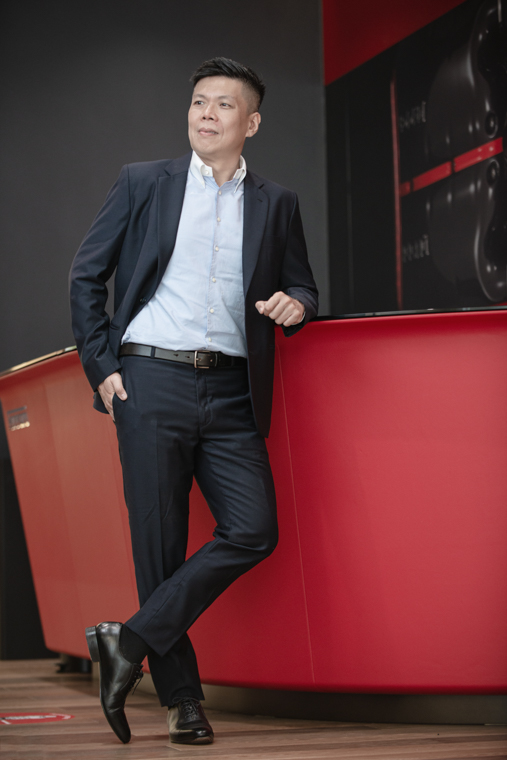 Chng Hak-Peng, CEO, Singapore Symphony Group
Chng Hak-Peng, CEO, Singapore Symphony Group
Chng Hak-Peng, CEO, Singapore Symphony Group
The limit on attendance at concerts hindered us greatly. These days, a full house sees less than 1/3 of the hall filled due to safe distancing measures. While Covid-19 has altered the concert experience, many have found new ways to enjoy music, such as through our new streaming platform, SSOLOUNGE.
On Singapore’s Art & Culture Scene
With the pandemic changing how people consume entertainment, it is vital for us to look beyond live events. By expanding offerings to provide online concerts, we similarly widen our audience reach.
The team has embraced technology and explored new concepts to deliver high-quality performances, such as our recent digital choral concert. Even as we face disruptions on productions involving large groups, we experimented having separate groups of choristers performing simultaneously using real-time headphones and video monitoring, ensuring we deliver an authentic music experience.
We look forward to continue contributing to the vibrant arts scene we enjoy today.
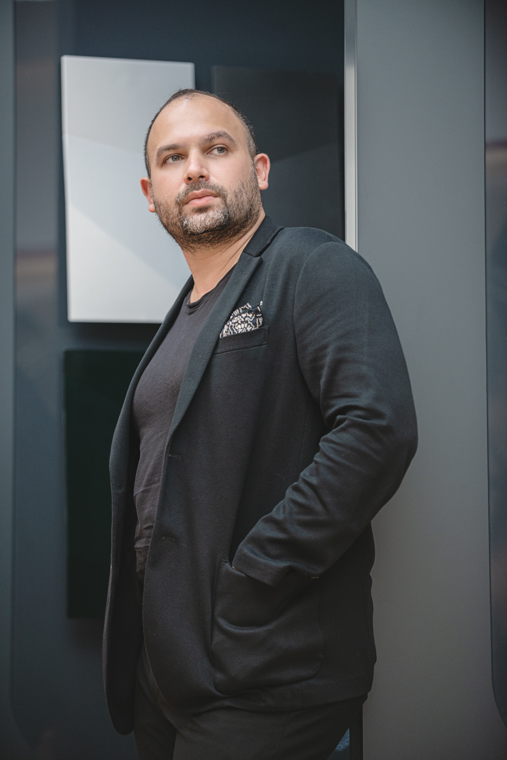 Ben Gattie, Founder and CEO, Triple P
Ben Gattie, Founder and CEO, Triple P
Ben Gattie, Founder and CEO, Triple P
As much of the world couldn’t access and temporarily questioned the need for non-essential real estate, one major challenge was putting our growth and expansion plans on hold. Instead, we futureproofed our business model, encouraging investors and clients to see beyond the numbers; to focus on the importance of building a resilient neighborhood.
On Real Estate
We shift the idea of ‘people serving real estate’ to ‘real estate serving people’, aiming to have an impact on our communities through positive gentrification. Curating experiences and concepts that appeal to different audiences throughout the day to constantly diversify and improve the neighborhood offering, making it more resilient and inclusive.
Operating a holistic approach, we give real estate purpose, creating sustainable profits. Through adaptive reuse, we recycle old properties, bringing new life and futureproofing them for the modern user while preserving and celebrating identity, culture, and heritage. This invigorates tenants, members, residents, and visitors, making them feel that real estate can be a vehicle not only to survive in but to thrive in, becoming part of a resilient, vibrant ecosystem.
Shot on location at Ferrari Singapore (Ital Auto Pte Lted)
30 Leng Kee Road, Singapore, 159100







 Paul Hadjy, CEO and Co-Founder, Horangi
Paul Hadjy, CEO and Co-Founder, Horangi
 Per-Ola Röst, CTO & Co-Founder, Rainforest
Per-Ola Röst, CTO & Co-Founder, Rainforest
 Melissa Quek, Head of School of Dance & Theatre, LASALLE College of the Arts
Melissa Quek, Head of School of Dance & Theatre, LASALLE College of the Arts
 Pornsak Prajakwit, CEO & Co-Founder, Mdada.live
Pornsak Prajakwit, CEO & Co-Founder, Mdada.live
 Shulin Lee, Co-founder, Ansa Search
Shulin Lee, Co-founder, Ansa Search
 Stephen Tracy, COO, Milieu Insight
Stephen Tracy, COO, Milieu Insight
 Jon Lister, CEO and Co-Founder, CreatorsLab
Jon Lister, CEO and Co-Founder, CreatorsLab
 Chng Hak-Peng, CEO, Singapore Symphony Group
Chng Hak-Peng, CEO, Singapore Symphony Group
 Ben Gattie, Founder and CEO, Triple P
Ben Gattie, Founder and CEO, Triple P


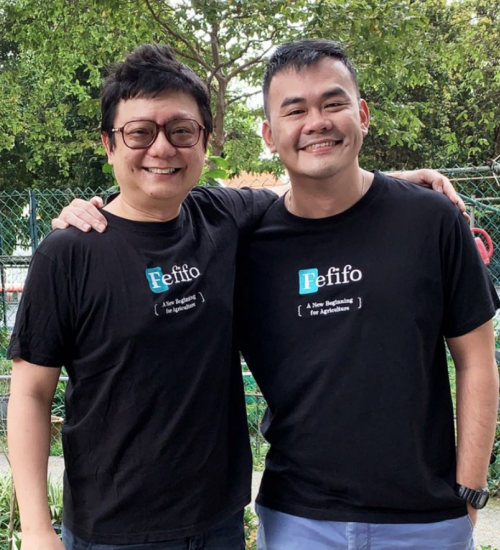
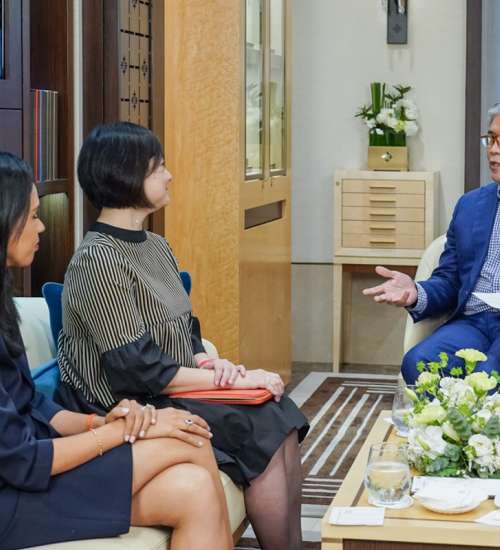
 Back
Back
